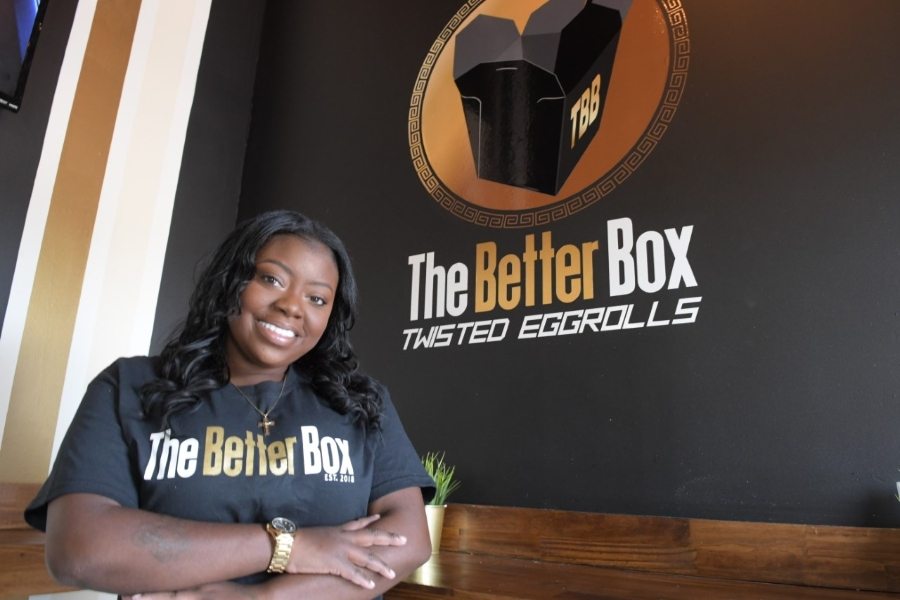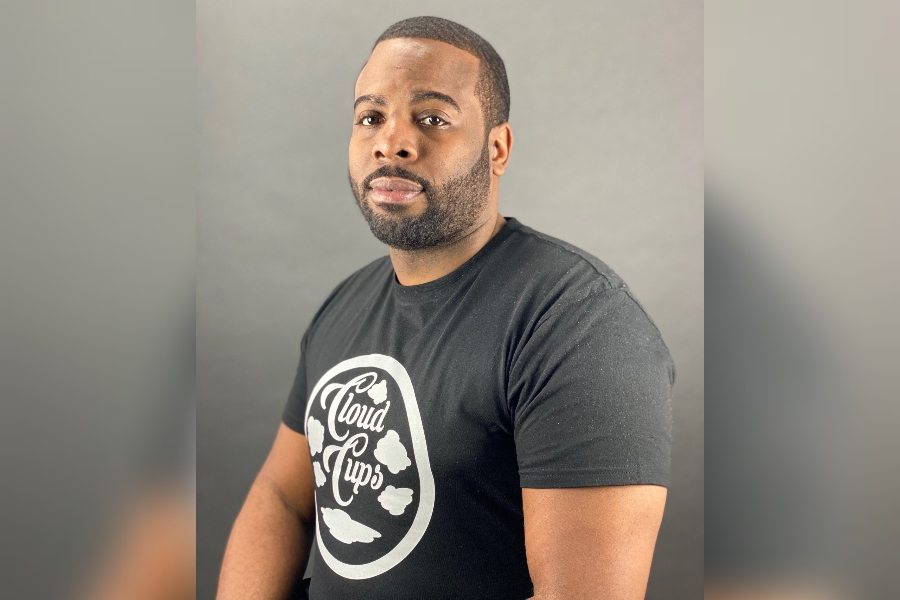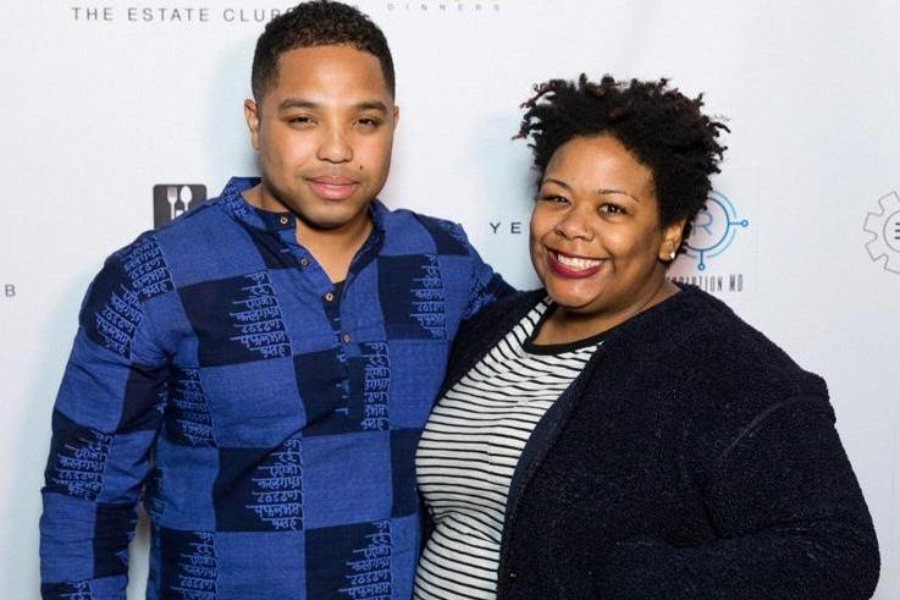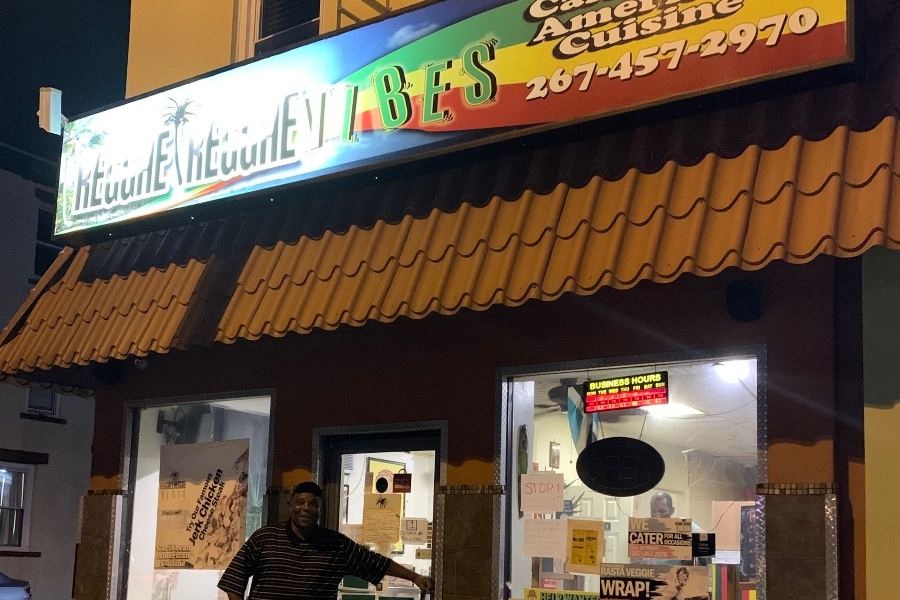Meet the 2.5 Percent: Philly’s Black Business Owners in Food Service
In Philly, where only 2.5 percent of businesses are Black-owned, these entrepreneurs have overcome more obstacles than most. Then came the pandemic, before civil unrest led to damage and looting of their businesses.

Tamekah Bost is the owner of The Better Box, LLC Twisted Eggrolls located at 8601 Frankford Avenue. / Courtesy
“Meet the 2.5 Percent” is a bi-weekly series that features stories from entrepreneurs and business owners working to recover from COVID-19, as well as damage and looting during Philly’s civil unrest. If you are a Black business owner and would like to share your story, please email qmuse@phillymag.com.
Business owners must always be prepared to pivot when conditions change. But the arrival of COVID-19 has presented challenges that even the savviest entrepreneurs weren’t ready for. All of Philadelphia’s food businesses have been hit hard by the pandemic, with hundreds of restaurants being closed for months due to essential business restrictions and stay-at-home orders preventing customers from visiting their favorite food trucks and coffee shops.
Just as the city began moving toward reopening, protests and riots in early June led to altered traffic patterns and looting, forcing many businesses to board up their windows or completely shift their plans to reopen. These conditions have been particularly tough for Black-owned food businesses in the city who may not have the same safety-nets and access to capital as their white peers. Through it all, these Philly food business owners have found a way to pivot by offering food by delivery in lieu of face-to-face service, enhancing safety protocols and doing whatever it takes to ensure their businesses survive.
They represent the mere 2.5 percent of businesses in Philadelphia that are Black-owned. Every other week, we’ll highlight members of Philly’s Black-owned business community whose stores have been damaged or looted, or whose businesses have been impacted by the coronavirus pandemic so you can get to know and support them.
The Better Box – Twisted Eggrolls
1519 Spring Garden Street

Tamekah Bost is the owner of The Better Box, LLC Twisted Eggrolls located at 8601 Frankford Avenue. / Courtesy
Fusion cuisine has always played an important role in Tamekah Bost’s life. As a young kid growing up in North Philadelphia, Bost learned how to make egg rolls from her grandmother. She particularly loved being able to take a Chinese-American staple like egg rolls and fill them with Philly food favorites like cheesesteak. It was from this nostalgic childhood experience that her business, The Better Box LLC, was born.
Bost, 25, started her business in 2018 using a popular model for food businesses known as “ghost” or “cloud” restaurants, where chefs can save money on overhead by renting commercial kitchen space for a few days each week and accepting delivery orders. Within four months of operating under this model, Bost saved enough capital to purchase a food truck in July 2018. A year later, she celebrated the opening of her first brick-and-mortar location at 8601 Frankford Avenue in Northeast Philadelphia.
This year, Bost was preparing to open a second location on Spring Garden Street in Fairmount when COVID-19, and later, damages during the riots put her business plans on indefinite hold. As non-essential businesses, both her food truck and her primary location have been closed since mid-March; and while she still bore the burden of paying overhead costs at her second location, the grand opening was postponed to June. When riots in early June pushed the grand opening date back yet again, Bost said, “We stand with our community and the world. Taking a little makeover in the form of graffiti was worth the cause.” (You can support the Better Box by ordering their products here).
Fortunately, the Better Box location in Fairmount suffered only minor damage in the riots and Bost was finally able to do a soft launch of her new location on June 12th.
“Having to put our expansion project on an indefinite pause due to COVID-19 was completely heartbreaking; it was a very stressful financial burden for us as a small business,” she said.
“But every day that I’m able to get up and go to my restaurant and produce our handcrafted gourmet eggrolls, it reminds me of my childhood and the hard work and culinary skills my grandmother instilled in me. The best part of my job is being able to make my customers happy. It’s a joy to be able to do something you love and to share that love with others.”
Barkley’s BBQ
2017 North 29th Street

Terrell Barkley is the owner of Barkley’s BBQ at 2017 North 29th St. / Courtesy
For 15 years, Terrell Barkley, 49, worked as a tractor-trailer driver before an unfortunate accident left him legally disabled and unable to drive. To cope with being at home and unable to work, Barkley began cooking on the grill, first for his family, then for friends in his neighborhood. Barkley quickly became known for the barbecue dinners he’d make and sell to neighbors in his Strawberry Mansion community. It wasn’t long before he received an offer to purchase an existing storefront restaurant to refurbish as his own.
“After that injury, when I couldn’t work, I knew I had to find something else to do. So, I started selling food from my home and when my phone rang one day with an offer to buy the space for Barkely’s, I said yes and never looked back,” Barkley said.
In 2014, Barkley used funds from his truck accident settlement along with personal savings to buy the building that now houses Barkley’s BBQ’s primary location on North 29th Street. In 2017, he added a food truck and later, a concession trailer as mobile locations. Then, in February 2020, the company celebrated the grand opening for a second location at Amtrak’s 30th Street Station. For about a month, the new location did extremely well, benefitting from the large number of travelers who typically pass through the station. Then, in mid-March, a statewide stay-at-home order brought everything to a screeching halt.
“Most of our business was from people traveling back and forth through the station. So, when people stopped commuting, the lockdown hit us hard,” Barkley explained.
Barkley estimates his business has already lost roughly 80 percent of what it would have earned by this point in the year and he anticipates he may have to close the 30th Street Station location if business doesn’t pick up soon. Barkley recently listed his restaurant on several food delivery apps and says he’s seen some uptick in delivery orders from his main location on 29th Street. (You can donate to support Barkley’s here).
“It’s been really rough but I try to look at the bright side,” he said. “Out of four parts of my business at least I still have one of them up and running.”
Cloud Cups
1100 East Berks Street

Galen Thomas is the owner of Cloud Cups, a CBD-infused gelato company. / Courtesy
The passing of the 2018 farm bill or Agriculture Improvement Act marked a significant time for would-be cannabis entrepreneurs like Galen Thomas. Among other provisions, the bill legalized the sale of products derived from hemp, a type of cannabis plant has low concentrations of the psychoactive component Tetrahydrocannabinol (THC) and higher concentrations of cannabidiol (CBD).
As soon as the bill was approved, Thomas, 33, a self-taught CBD infusion artist, sprung into action to start his own CBD-infused dessert business.
Having already learned to make gelato at the Carpigiani Gelato University in Chicago, Thomas launched Cloud Cups in April 2019. He began distributing his frozen, CBD-infused gelato treats at one store in Northern Liberties. Cloud Cups products are now being sold in seven retail locations (six in Philadelphia and one in Atlanta, Ga.) as well as through the company’s new website. (You can support Cloud Cups by ordering their products here).
“I believe CBD is the perfect segue for people of color to get into the cannabis industry (where not too many of us are not included),” Thomas said. “I’ve also found that a lot of my customers and family members use our products in their daily wellness routine. That warms my heart and makes me we want to continue to grow and build Cloud Cups to become a household name.”
In December 2019, Thomas leased a physical space inside the Pizza Brain restaurant at 2313 Frankford Avenue. He was preparing a grand opening at the Frankford Avenue location when COVID-19 arrived in Philadelphia and forced the company to transition its business strategy. Thomas has since developed a process for customers to shop online and pick up at the company’s headquarters location on Berks Street. As COVID-19 restrictions ease, Thomas is hopeful that Cloud Cups will be able to open, full scale again, soon.
Win Win Coffee Bar
931 Spring Garden Street

Nikisha Bailey and Matthew Namaste are co-owners of Win Win Coffee Bar located at 931 Spring Garden St. / Courtesy
Nikisha Bailey, 33, wanted to create a safe space for Black people and their allies to meet, talk, perform, or dance the night away. In April 2019, Bailey and a longtime friend, Matthew Namaste, combined their resources to buy Win Win Coffee Bar. As two first-time business owners, they had no luck obtaining funding from a bank. So, they pooled together personal savings and contributions from friends to lease the cozy venue on Spring Garden Street, which became a home for musical performances by local artists, open mic nights, art shows and hearty meals.
The Win Win coffee shop was thriving until the pandemic arrived and forced the venue to close mid-March.
“Never in my life would I think that we would have to close due to a pandemic,” she said. “It’s something you read about in history books, but you think we’re far more advanced in technology and medicine. It’s not something that was even on our mind before we learned we’d have to close.”
Bailey says she’s pursued every opportunity to keep her business afloat. She’s applied for several business grants with hopes of receiving funding to pay wages for staff and operating costs (for rent and utilities) that they’ve continued to incur despite the shop being closed. Bailey also applied to receive a loan from the federal Paycheck Protection Program but has yet to receive a response about the company’s application. (You can donate to support Win Win here).
Many hurdles lie ahead for the small shop, as Bailey will have to find new ways to foster the closeness her customers enjoy while maintaining a safe distance to prevent the spread of coronavirus. Still, Bailey says she’s confident they’ll be able to establish a plan to reopen and get back to inspiring people in her community.
“This business represents so much for Matthew and me. We own something. We are young Black owners in one of the blackest cities in the United States,” she said. “We’ve overcome so much individually and collectively, and we want to continue to inspire others in the community to achieve their goals.”
Reggae Reggae Vibes
517 West Girard Avenue

Brenton Walker is the owner of Reggae Reggae Vibes restaurant located at 517 West Girard Avenue. / Courtesy
Thirty years ago, Brenton Walker came from Portland, Jamaica to Philadelphia with hopes of creating an authentic Jamaican jerk experience with a Philly twist. In 2015, Walker, 68, used his personal savings to lease a storefront for Reggae Reggae Vibes restaurant in North Philadelphia. The restaurant has become known for its cheesy, spicy jerk chicken cheesesteak, which combines the two regions’ most beloved cuisines.
“Bringing quality, authentic Jamaican food to Philadelphia and beyond is a lifelong dream come to fruition,” Walker said.
Amid the pandemic, Walker says Reggae Reggae has faced challenges in adhering to CDC guidelines while also dealing with product shortages and price increases from food distributors. When many other food businesses closed, Reggae Reggae remained open, but not without making several changes to its operations. In addition to suspending dine-in eating, Walker limited the number of customers allowed in the store to one at a time and required all customers and staff to wear masks. With dine-in service suspended, sales have not been the same for Reggae Reggae. (You can support Reggae Reggae Vibes by ordering online here).
To offset their losses, Walker has encouraged customers to place orders over the phone for pick-up or to use Uber Eats and Grubhub for delivery. It has taken weeks to fully implement the new protocols, yet Walker says the most challenging part has been getting customers to adhere to the new rules.
“Some people are always trying to get around wearing a mask,” he said. “I tell them, it’s for your benefit as well as others to help prevent contracting COVID-19. No mask, no service.”

Philadelphia magazine is one of more than 20 news organizations producing Broke in Philly, a collaborative reporting project on solutions to poverty and economic mobility in the city. Read all our reporting here.


